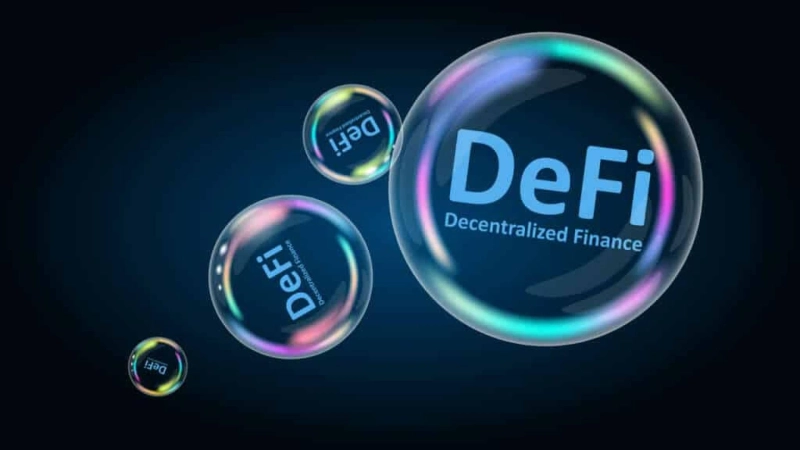In the ever-evolving landscape of financial services, a revolutionary force has emerged, reshaping the traditional paradigms of banking and transactions. Welcome to the world of decentralized finance, or DeFi, where the intersection of blockchain technology and finance has given rise to a transformative movement. In this comprehensive guide, we will unravel the intricacies of "Decentralized Finance: What is Decentralized Finance (DeFi)?" – a groundbreaking approach that leverages decentralized networks to redefine accessibility, security, and innovation in the financial realm. Join us on a journey through the fundamental principles, key features, and potential implications of DeFi as we navigate the landscape of this paradigm-shifting financial revolution.
Key features of DeFi
Decentralization: DeFi eliminates the need for intermediaries by utilizing smart contracts, which are self-executing contracts with the terms of the agreement directly written into code. This decentralized approach enhances security and reduces the risk of fraud.
Accessibility: DeFi platforms are open to anyone with an internet connection, enabling global access to financial services without the need for a traditional bank account. This inclusivity empowers individuals who are excluded or underserved by conventional banking systems.
Interoperability: DeFi protocols are often built on open standards, allowing different platforms to seamlessly interact and integrate. This interoperability fosters collaboration and innovation within the DeFi ecosystem.
How does decentralized finance work?
Smart Contracts
At the heart of DeFi are smart contracts, self-executing programs that automatically enforce the terms of a contract when predefined conditions are met. These contracts are coded on blockchain platforms like Ethereum, providing transparency and trust without the need for an intermediary.
Decentralized Exchanges (DEXs)
Decentralized exchanges facilitate the trading of cryptocurrencies without relying on a centralized authority. Users retain control of their funds while trading directly with others, promoting a peer-to-peer exchange model.
Decentralized Lending and Borrowing
DeFi platforms offer decentralized lending and borrowing services through smart contracts. Users can lend their digital assets to others or borrow funds without the need for traditional financial intermediaries. This process is often more efficient and cost-effective.
Yield Farming and Liquidity Mining
Yield farming and liquidity mining involve users providing liquidity to decentralized platforms in exchange for rewards. These incentives encourage users to contribute to the liquidity pool, ensuring the smooth operation of DeFi protocols.
The importance of decentralized finance
Financial Inclusion
One of the primary goals of DeFi is to promote financial inclusion by providing services to the unbanked and underbanked populations. With internet access, individuals can participate in financial activities without the need for a traditional bank account.
Security and Transparency
Decentralization enhances security by reducing the risk of single points of failure. Additionally, the transparent nature of blockchain ensures that all transactions and operations within the DeFi ecosystem are visible and verifiable.
Innovation and Accessibility
DeFi fosters innovation by allowing developers to build new financial applications on existing protocols. This open-source approach encourages creativity and the development of a diverse range of decentralized financial products and services.
Challenges and risks in decentralized finance
Smart Contract Vulnerabilities
While smart contracts offer transparency and security, they are not immune to vulnerabilities. Flaws in code can lead to exploits, potentially compromising user funds. It is crucial for developers to conduct thorough audits and testing.
Regulatory Uncertainty
The decentralized nature of DeFi poses challenges in terms of regulation. As governments and regulatory bodies grapple with the evolving landscape, there is uncertainty surrounding how DeFi platforms will be governed and monitored.
Market Volatility
The cryptocurrency market, which is closely tied to DeFi, is known for its volatility. Users should be aware of the potential for rapid price fluctuations when participating in decentralized financial activities.
In conclusion, Decentralized finance represents a paradigm shift in the way we perceive and engage with financial services. By leveraging blockchain technology, DeFi offers a more inclusive, transparent, and innovative alternative to traditional finance. As the ecosystem continues to evolve, it is crucial for users to stay informed about the risks and benefits associated with decentralized finance. Embracing this transformative movement responsibly will contribute to its long-term success and sustainability.



